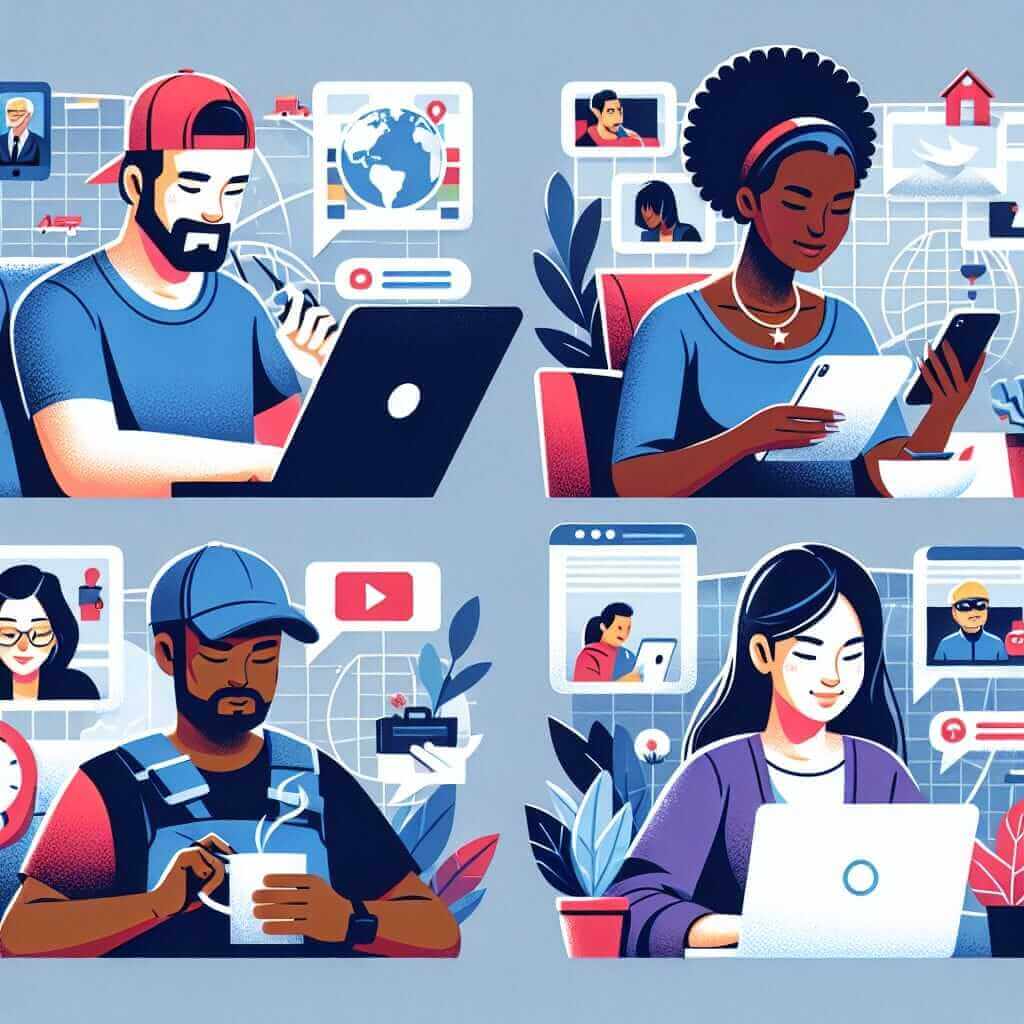The IELTS Reading test is a crucial part of the examination, evaluating your ability to understand and process written English. Recently, technology’s impact on various sectors has become a popular topic, particularly in the gig economy. This article explores “How is technology influencing the future of the gig economy?” through an IELTS-format reading exercise, providing you with ample practice to refine your reading skills.
Historically, topics involving technological advancements and economic impacts have frequented IELTS Reading sections. Given the rapid evolution of the gig economy, this subject is highly likely to appear in future tests.
Main Content
Reading Passage
Format: Medium Text
How is Technology Influencing the Future of the Gig Economy?
The gig economy, characterized by short-term contracts and freelance work, has witnessed significant growth in recent years. Technology has played a pivotal role in this expansion, offering platforms that connect freelancers with clients more efficiently. Innovations in various fields have reshaped the gig economy, presenting both opportunities and challenges.
Technological advancements have enabled gig workers to access a global marketplace, breaking geographic barriers that once confined them to local gigs. Platforms like Upwork, Fiverr, and TaskRabbit allow freelancers to offer their services to clients worldwide. This accessibility has democratized work opportunities, enabling individuals with diverse skill sets to participate in the global economy.
However, the reliance on technology also presents challenges, such as job security and fair wages. Gig workers often face uncertainties regarding consistent work and income. Algorithms and rating systems, crucial for matching freelancers with clients, can sometimes be biased, affecting workers’ job prospects.
Automation and artificial intelligence (AI) have further influenced the gig economy. While automation might render certain jobs obsolete, it also creates new opportunities. For instance, AI can assist freelancers in tasks like data analysis and digital marketing, enhancing their productivity. Yet, this raises concerns about the need for continuous upskilling to stay relevant in an ever-evolving market.
Moreover, technology has facilitated the rise of remote work, a trend that has gained momentum, especially during the COVID-19 pandemic. Remote work platforms like Zoom and Slack have enabled gig workers to collaborate effectively despite physical distances. This shift towards remote work is likely to persist, making digital literacy increasingly essential for gig workers.
In conclusion, technology’s influence on the gig economy is multifaceted, offering both advantages and obstacles. Staying abreast of technological trends and continuously upgrading skills will be vital for gig workers to thrive in this dynamic landscape.

Questions
Format: Multiple Choice, True/False/Not Given, Matching Information
-
Multiple Choice:
- What has technology enabled gig workers to do?
- A. Access local marketplaces only
- B. Access a global marketplace
- C. Only work full-time jobs
- D. Avoid using algorithms
- What has technology enabled gig workers to do?
-
True/False/Not Given:
- The reliance on technology guarantees fair wages for gig workers.
- A. True
- B. False
- C. Not Given
- The reliance on technology guarantees fair wages for gig workers.
-
Matching Information:
- Match the information to the correct statement:
- A. Freelancers need to continuously upgrade their skills.
- B. Remote work has become more prevalent due to the COVID-19 pandemic.
- C. Automation creates new opportunities despite making some jobs obsolete.
- Match the information to the correct statement:
Answer Keys with Explanations
-
Multiple Choice:
- B. Access a global marketplace
- Explanation: The passage emphasizes that technology has enabled gig workers to access a global marketplace, breaking geographic barriers.
- B. Access a global marketplace
-
True/False/Not Given:
- B. False
- Explanation: The text suggests that reliance on technology presents challenges such as job security and fair wages, indicating that it does not guarantee fair wages.
- B. False
-
Matching Information:
- A. Freelancers need to continuously upgrade their skills.
- B. Remote work has become more prevalent due to the COVID-19 pandemic.
- C. Automation creates new opportunities despite making some jobs obsolete.
- Explanation: These matches are directly stated in the text under various sections.
Common Mistakes to Avoid
- Misinterpreting Algorithm Bias: Many students assume all algorithms are unbiased. However, the passage highlights the potential bias in algorithms that match freelancers with jobs.
- Generalizing Technology’s Impact: While technology offers many opportunities, it’s crucial to note both positive and negative effects.
Vocabulary
- Democratize (v) /dɪˈmɒkrətaɪz/: Make something accessible to everyone.
- Frequent (adj) /ˈfriːkwənt/: Occurring often or regularly.
- Obsolete (adj) /ˌɒbsəˈliːt/: No longer in use, out-of-date.
- Digital Literacy (n) /ˈdɪdʒɪtl ˈlɪtərəsi/: The ability to use digital technology and tools effectively.
Grammar Focus
- Complex Sentences: Use of conjunctions like “while,” “although,” and “because” to join clauses.
- Example: Although automation might render some jobs obsolete, it also creates new opportunities.
Advice for High Reading Scores
- Practice Regularly: Consistent practice with various reading passages will improve your speed and comprehension.
- Enhance Vocabulary: Learning new words and their correct usage will aid in understanding complex texts.
- Understand the Question Types: Familiarize yourself with different IELTS question formats to avoid surprises during the test.
- Note-Taking: Develop a habit of taking brief annotations, which can help you remember key points and answer questions more efficiently.
In conclusion, leveraging technology to your advantage can significantly enhance your preparation for the IELTS Reading test. By understanding the dynamic landscape of the gig economy, you’ll not only broaden your knowledge but also sharpen your reading skills.